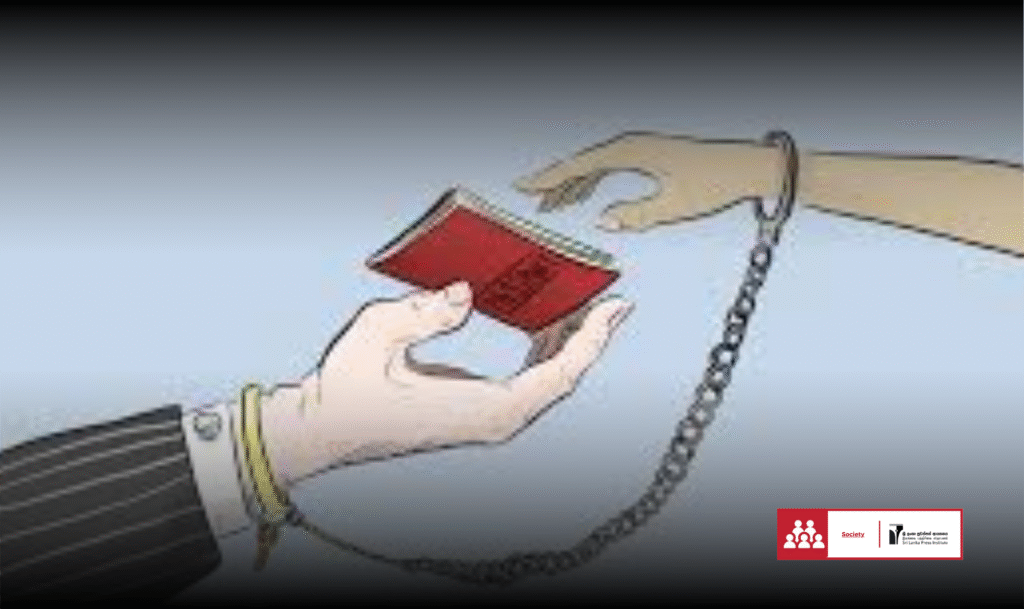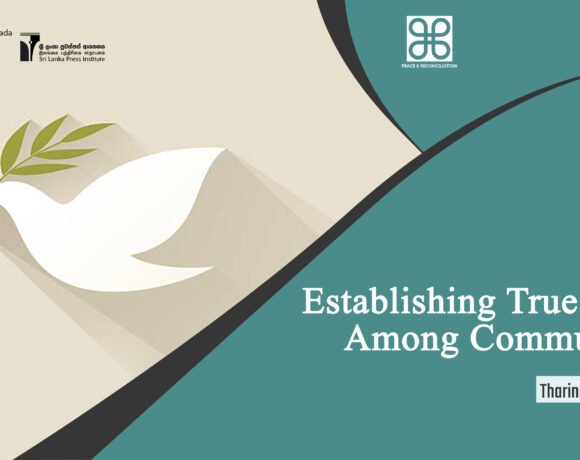Sheneth Srimal

Socio-Economic Issues Faced by Sri Lankan Workers Due to Human Traffickers
For many Sri Lankans living in challenging social conditions, securing employment abroad appears to be the only viable path to improving their lives. However, this dream often turns into a nightmare, leading them down an unstable and unsafe path controlled by traffickers. Despite global advancements, a significant number of workers today face economic hardships, and due to the high costs associated with legal migration pathways, they are driven towards illegal means. The risks, injustices, and impact on families and society in this context are far from negligible.
Sri Lanka has a high number of workers who migrate abroad through irregular means. Many of these individuals fall victim to human traffickers, and the living conditions and socio-economic consequences they endure are severe. Examining the economic and social effects of irregular migration is essential. (Perera, 2022).
Causes of Irregular Migration
There are various underlying causes that drive irregular migration in Sri Lanka. One of the primary reasons is the low household income levels, which push individuals to seek better income opportunities in foreign countries. (Sanjeewa, 2021). Many of these individuals pursue irregular migration routes to improve their living standards, either due to legal pathways being inaccessible or due to outdated legal procedures.
Additionally, legal migrant workers and informal foreign employment agencies in Sri Lanka also contribute to encouraging others to take illegal migration routes. (De Silva, 2023).
Issues Faced by Workers Due to Human Trafficking
Workers who migrate through irregular means frequently fall prey to human traffickers, leading to unforeseen and unfortunate circumstances. Analyzing their experiences reveals several issues related to their living conditions and socio-economic impact. These individuals often find themselves in exploitative jobs with low wages, face security concerns, and are forced into employment with limited freedom and no protection. (Mahesh, 2021).
Social Consequences of Irregular Migration
Irregular migration has profoundly detrimental social consequences. One major impact is the weakening of family ties and disruptions to family lifestyles due to the increasing outflow of individuals for foreign employment. (Gunaratne, 2022). This phenomenon significantly affects the living conditions of families in Sri Lanka, with young children facing particular risks concerning their security and well-being.
Moreover, individuals who fail to secure stable employment abroad and those who struggle with legal and financial hardships often find themselves disconnected from their extended families and communities. Such migration patterns also negatively impact children’s education and create broader social and economic repercussions. (Rathnayake, 2021).
Economic Impact
The economic consequences of irregular migration are substantial. Many individuals struggle to secure stable jobs, leading to significant financial losses for their families. Additionally, the lack of social protection abroad and the challenges of securing a stable income disrupt their future financial planning. (Sanjeewa, 2021).
Responses and Policy Recommendations
Due to the hardships caused by irregular migration, it is crucial to provide necessary guidance and establish a community-driven approach to promoting legal migration channels for foreign employment. (Perera, 2022).
- Legal Programs and Increased Awareness
Greater awareness must be created about irregular migration and the legal environment surrounding it. Establishing well-functioning legal migration centers and employment agencies is essential to support safe migration practices. - Strengthening Monitoring and Inspection Programs for Foreign Employment
Implementing proper monitoring and inspection mechanisms is necessary to ensure the safety of migrant workers and protect them from exploitation.
The socio-economic consequences faced by Sri Lankan workers attempting to migrate through illegal channels are severe. The desire for better job opportunities abroad leads many into the hands of traffickers, resulting in exploitation, psychological distress, and financial instability. Women, in particular, are vulnerable to physical and emotional abuse, increasing their risk of economic hardships. Raising awareness at regional, national, and international levels about safe and legal employment opportunities, enforcing stricter laws against human traffickers, and facilitating easier access to legal migration pathways can help mitigate these challenges.








